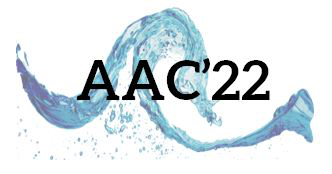Speaker
Description
Meter scale plasma channels are a crucial component of plasma wakefield accelerators. Creating a meter-scale plasma requires distributing the energy of the laser over that length while maintaining a high local intensity along the channel. One method for generating such a channel is by using a method known as the “flying focus”. Flying focus uses a diffractive optic on a chirped laser pulse, so that a travelling ionization wave with controlled velocity can be generated. Since the phase imparted on the laser pulse by the diffractive optic governs the spatial characteristics of the plasma channel, an important aspect of this problem is to determine the required phase of the diffractive optic. Our approach for determining the phase of a flying focus optic is through the use of machine learning (ML), specifically zeroth order descent. The input of the ML algorithm will be the desired laser intensity profile and the algorithm will return an optic (or phase plate) that will result in this intensity profile. Zeroth order descent is an iterative approach like gradient descent which optimizes a cost function to reach the global solution. The first step towards creating this ML algorithm involves a ray tracing problem which optimizes the surface of an optic to create an optimal focal spot. This poster presents the results of the zeroth order descent method on the 1D case which is to find the optimal conic constant of the optic and then describes the multi-dimensional case, where each discrete point of the optic can be individually optimized to result in the desired focal spot.
Acknowledgments
This material is based upon work supported by U.S. Department of Energy, Office of High Energy Physics (HEP) Accelerator Stewardship program under Award Number DE-SC-0020396

